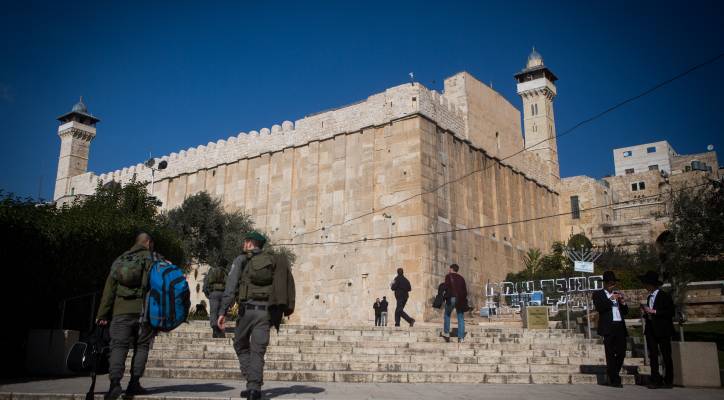UNESCO has passed a biased resolution recognizing Rachel’s Tomb in Bethlehem and the Cave of the Patriarchs in Hebron, both extremely important to Jews and Judaism, as Muslim sites.
Twenty-six UNESCO representatives voted in favor of the resolution, six voted against, and twenty-five abstained. The United States, Britain, Germany, the Netherlands, the Czech Republic and Estonia opposed the resolution.
The initial draft resolution had also claimed that the Western Wall was an Islamic holy site but that part was withdrawn after it received widespread criticism.
However, even though the resolution that was passed did not label the Western Wall as an Islamic holy site, this UNESCO resolution can still be considered a major blow to the State of Israel and to Jewish people worldwide. The Cave of the Patriarchs, which is the burial place of all of Israel’s patriarchs and matriarchs except for Rachel, is the second holiest site in Judaism. Adam and Eve are also believed to have been buried in the same location. Due to the holiness of the Tomb of the Patriarchs, Hebron is mentioned 87 times in the Jewish Bible. Genesis 23 documents how the forefather of the Jewish nation Abraham purchased the burial tomb for his wife Sarah and all of his descendants, which the traditional Jewish scholars stressed proves that the site indisputably belongs to the ancestors of Abraham, the Jewish people, for all eternity. While Abraham is also considered important in the Islamic faith and the Muslims presently share the holy site with the Jewish people, it has been noted by scholars that the Cave of the Patriarchs was nevertheless a Jewish holy site before it was a Muslim one because Judaism predates Islam.
Rachel’s Tomb is considered the third holiest site in Judaism after the Temple Mount and the Cave of the Patriarchs. For the past 1,700 years, it has been identified as the burial place of the Jewish matriarch Rachel. Jews were known to pray at this site for the past 3,000 years. Whenever the Jewish people faced sorrows throughout the generations, they would traditionally pray at her grave. Jewish tradition maintains that Rachel was buried in Bethlehem instead of in Hebron because Yaakov foresaw that her descendants would need her prayers en route to exile in Babylonia.
Historically, the Muslim world considered Rachel’s Tomb a site holy to the Jews. According to a report written by the Jerusalem Center for Public Affairs, the sixteenth century Arab historian Mujir Al Din wrote that Rachel’s Tomb was a Jewish holy place. He recorded that Rachel’s Tomb was built with “eleven stones and covered with a cupola which rests on four pillars, and every Jew passing writes his name on the monument.” The same JCPA report declared that in 1830, the Ottoman Turkish authorities decreed that Rachel’s Tomb was a Jewish holy site, proclaiming, “the tomb of esteemed Rachel, the mother of our Lord Joseph…they (the Jews) are accustomed to visit it from ancient days; and no one is permitted to prevent them or oppose them (from doing) this.” Another Ottoman decree, dated 1831, orders that all obstacles be removed that were in place that interfered with members of the Jewish community that sought to visit Rachel’s Tomb.
By: United with Israel Staff. With files from Times of Israel and Jerusalem Online.
